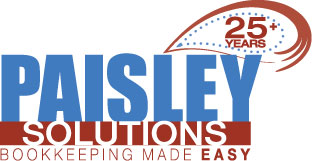Your company is taking in more money than it spends… so it’s profitable, right?
Right – but understanding how profitable you want your business to be is key to achieving success. Some people just want their businesses to produce an honest living for themselves, while others strive to be the most profitable in their industry. Defining your monetary goals is an important undertaking.
There are three ways to measure profitability:
- for the principals
- for the investors
- for the business as a whole
If a business breaks even as a whole (or even loses some money) but still pays investors a fixed rate, technically it’s considered profitable. Is that what you want for your business?
Deciding how profitable you want to be – and tracking it carefully with a sound accounting system – will help you see both the smaller and bigger pictures of your company’s success. Analyzing all the data you can gather and adjusting your plans accordingly is key.
Get started on setting smart profitability goals that reflect your company’s DNA. It’s one more way you can keep your business on a path to continued success.
And at Paisley Solutions we’re always here to help.
More on the subject:
https://smallbusiness.chron.com/1099-form-being-independent-contractor-10977.html
Setting profitability goals
Companies set lots of different kinds of goals: adding a certain number of new clients, introducing new products, expanding staff, and bringing in new investors. And it makes sense to set profitability goals as well.
For example, your initial goal could be what’s known as ramen profitability, which is when you generate enough cash flow that you (and your fellow founders/principals) can sustain a minimal lifestyle as quickly as possible without the need to resort to outside jobs or income.
And It typically takes two to three years for a business to start turning a profit – but even if it isn’t making money yet, that doesn’t mean it’s doing poorly. Businesses can exist for years without showing a profit as a whole, and the principals are satisfied with that. But if high corporate profitability is your goal, that will help determine how you structure the company – including the ledger sheets you design and use.
Multiple outside factors influence the level of profitability you want to achieve, as do your personal goals for your business. How much start-up capital do you need? What are your production costs? How many employees will you need? Does your business have seasonality, i.e. high and low revenue periods? What are your compensation and investor servicing expenses?
To make sure your company is as profitable as you want it to be, and stays that way for the long term, take these steps now – whether you’re just starting out or are already on your way:
- define your business goals
- create a business plan
- reinvest in the company whenever you can
- be thoughtful and selective (you don’t have to say yes to every opportunity)
Think about your profitability goals as early in your business life as you can; it’s never too late to solidify them for yourself, your colleagues and employees.
And at Paisley Solutions we’re always here to help.
More on the subject:
- https://www.forbes.com/sites/allbusiness/2015/05/11/surviving-first-year-as-small-business-owner/#6122c9208e55
- https://smallbusiness.chron.com/average-time-reach-profitability-start-up-company-2318.html
- https://smallbusiness.chron.com/assess-small-business-making-money-15164.html
- https://smallbusiness.chron.com/ways-increase-profitability-small-business-4148.html

